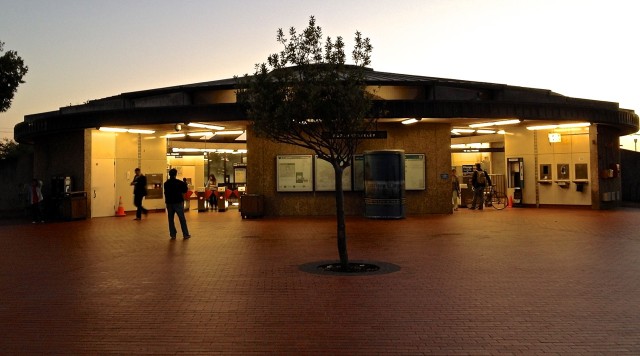“After eight months of uncertainty for our riders," Crunican said in the BART statement, "this deal will guarantee that every ounce of the Agency’s focus will be directed to providing great service to the Bay Area during the peak holiday period and beyond." John Arantes, president of the SEIU 1021 BART chapter, called today's agreement "a fair resolution that would close months of drawn out contract talks and — in the interest of the riding public — end the uncertainty caused by the board’s removal of a section from our final, complete contract."
Not all the fallout from this year's labor dispute has settled.
Joel Keller, who took over as president of the BART Board of Directors this week, says he wants to hold a referendum on whether the agency's union employees should be allowed to strike. That vote would be advisory only — the state Legislature would have to enact any changes in the workers' collective-bargaining status — but Keller's suggestion immediately drew angry denunciations from union officials.
Below are the statements from BART and from SEIU Local 1021, followed by the signed agreements the two sides announced today:
From BART:
BART General Manager Grace Crunican announced that all contract issues have been settled between BART and its two largest labor Unions. She will recommend the ratification of a final collective bargaining agreement with SEIU Local 1021 and ATU Local 1555 to the BART Board of Directors as soon as possible.
The last remaining contract difference was resolved with solutions that are administrative in nature and/or will be covered within BART's existing budget.
“After eight months of uncertainty for our riders, this deal will guarantee that every ounce of the Agency’s focus will be directed to providing great service to the Bay Area during the peak holiday period and beyond,” said Crunican.
BART and its Unions have spent the last month working to resolve a disputed tentative agreement which would have added weeks of additional paid leave time to BART employees. The issue was resolved with a series of agreements that 1) expands the District’s Bereavement Leave policy to allow workers paid time off in the event of the death of a grandchild or step-parent of a spouse or domestic partner, 2) upgrades employee break rooms at the Daly City, Millbrae and West Oakland BART stations, to be paid for through the District’s already funded station modernization program, 3) allows qualifying employees more flexibility in how they pay for the costs of their family medical leave, plus additional administrative changes to the contract.
Today BART’s largest unions, SEIU 1021 and ATU 1555, reached a tentative agreement with BART’s Management’s negotiators on a disputed contract provision on paid family medical leave.
From the SEIU:
“Today we’re proud to announce that we’ve reached a resolution that we can bring back to our members for a vote,” said SEIU 1021 BART Chapter President John Arantes. “It’s a fair resolution that would close months of drawn out contract talks and—in the interest of the riding public—end the uncertainty caused by the Board’s removal of a section from our final, complete contract.”
“BART Management has been adamant in their admission of a mistake and how they’ve handled the situation,” Arantes continued, “and, in the past few days, we’ve had the opportunity to have meaningful discussion and resolve some of our differences at the bargaining table. We’d like to thank Greg Lim, from the Federal Mediation and Conciliation Services, who returned to provide valuable assistance.”
“Our ability to address the disputed provision at the bargaining table resulted from BART Management’s negotiators sharing the unions’ commitment to bargain fairly and equitably,” said Des Patten, SEIU 1021 Professional Chapter President. “That’s the way to fix problems, and the way we hope BART Management and the BART Directors would move forward from now on, so that they can restore the lost trust from the riders and from their workers.”
After the BART Board of Directors ratify the contract, the amended version of the strike-ending agreement will be brought before SEIU 1021 and ATU 1555 members for a vote. Once ratified, the contract terms would go into effect.
On November 21st, the BART Board of Directors voted to approve a contract that did not have a provision on family medical leave, that BART’s chief negotiator Thomas Hock, Assistant General Manager Paul Oversier, and Labor Relations Manager Rudy Medina bargained and signed with its unions.
